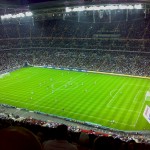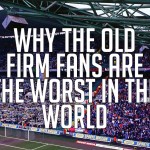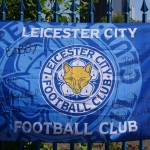Football Clubs That Almost Went Bust
If you are a follower of football and keep up with the latest stories, then you will probably be aware of the situation that Italian club Parma find themselves in at the moment. The once Italian giant, is on deaths doorstep – coming closer to oblivion every day.
Let’s lay it out a bit more. Parma, the club who won the then UEFA Cup twice in the space of 5 years, most recently in 1999, is going bust. Parma, the club who nurtured and shaped the careers of stars such as Hernan Crespo, Hristo Stoichkov, Gianfranco Zola and World Cup winners Lillian Thuram, Gianluigi Buffon and Fabio Cannovaro, is going bust.
It’s a sad day for football when any club begins to lost its battle against its financial difficulties, but more so when it is a club the stature of Parma, with a rich history and an avid fan base.
However, this isn’t the first time that a giant of world football has come close to the brink. With football now being a business rather than a sport, clubs coming close to insolvency or liquidation. Some of the time, you might not even have known about it. In other cases, it’s all you heard about.
Here we look at some of giants that have been in similar situations, some might even surprise you.
Leeds United
2001 might seem like a while ago now, but not if you are a Leeds United fan. This is around the time the club were at their peak and even reached the semi-final of the Champions League. They hadn’t won the top flight since 1992, but the club were always competitive in the years following.
Or at least, they were until the hedged their bets on loans against projected income from Champions League football, which they then failed to qualify for the next season. With no money coming from CL TV or general progression, the club found themselves in a bit of a bind. They had to start selling their best players such as Rio Ferdinand and Jonathon Woodgate to try and balance the books, but this still wasn’t enough.
Leeds eventually were relegated from the Premier League in 2004 to go along with their financial woes. Things worsened, and in 2007 the club went into full administration, with an accompanying 10 point deduction which virtually sealed their relegation to the English 3rd tier.
Money was drying up, fans were losing patience, the team weren’t performing on the field. It was bad times for Leeds United, and it didn’t look like to be getting better any time soon.
However in 2010, after the appointment of Simon Grayson, Leeds managed to get themselves back into the second tier of English football, The Championship.
Things have arguably became better since, with the club not vying for promotion, but not battling relegation either. A new, eccentric owner in the form of Massimo Cellino has taken over the club, but this seems to be a repetition of old times, with Cellino now being banned by the Football League and being asked to resign from the club.
Will Leeds ever get back to the platform that they once stood on so proudly?
Rangers
The team that played Leeds in the famous Battle of Britain in 1993 have themselves fallen a long way since their days of snapping up top European talents and the famous 9 in a row.
All seemed fine for the Glasgow giants, with them even taking a run to the Europa League final in 2008, which they lost to Zenit St. Petersburg, and no one had expected them to even start struggling financially. However, in 2011 it came to the light that the club had been struggling financially for a long time.
Dealings from then owner Sir David Murray caused investigation into the club books when it became apparent that the club had been paying players in an EBT scheme. While it wasn’t technically illegal for the club to be using such methods, the HMRC challenge the clubs use of the scheme and Rangers were hit with a £35m unpaid tax bill.
This was just the start of the controversy. Their new owner Craig Whyte, seen by many as Rangers’ saviour as he was a wealthy businessman who was a fan of the club, had taken over, but by means of borrowed money against future season ticket income, which equalled more debt for the club. This started a whole new dilemma for the club and by the end of the 2011/12 season; the club had entered administration and faced liquidation.
In a common move for football clubs, the registered company that owned Rangers reformed as a new company in order to handle the administration costs and tax bills, meaning that Rangers had to re-register to the SFL. They had hoped to re-enter in the First Division, but after a vote of all SFL members, Rangers began the 2012/13 season in the 4th tier of Scottish football.
Thus began their journey back to the top flight, and managed to secured successive promotions in the Scottish Championship, the 2nd tier of Scottish football. However, recently new problems have arose for the troubled club. With people not sure of who exactly owns the clubs, never mind who is running it, fans have called to oust the existing board and for new ownership and management.
A fan based group known as Rangers First teamed up with ex-director Dave King, another supporter of the club, and successfully took back control of the club.
Under new leadership, the club now has to again rebuild for them to reach the levels that they were once performing on. The club currently sits second in the Scottish Championship, well behind leaders Hearts, but still have a change of gaining promotion to the Premiership through means of the playoffs.
Though, even if they do gain promotion, no one really knows what is next for the club. Will the new regime have the interests of the club in mind, or will it just be another repeat of the previous rule? Only time will tell.
Chelsea
You might not think that the 2012 Champions League winners and oil rich Londoners would be a club associated with financial trouble, but to your surprise, they were.
Before the mega-bucks of Roman Abramovich, Chelsea were a mid table Premiership team who hadn’t won the top flight since 1955 and whose only real accomplishments were a Cup Winners Cup victory in 1998 alongside a couple of FA Cups – but they were heavily in the red.
What might not have been known to fans at the time was that the club had extensive debts, reportedly around £80m. And it wasn’t debt against a parent company, or a mortgage against a stadium that are both commonplace in modern football, but real, bona fide debt debt.
Owner at the time Ken Bates did have the club at heart, but even he was struggling to conjure up some way of battling the clubs financial troubles.
Chelsea legend Frank Lampard’s book gave us a picture of just how bad things were before the Russian billionaire took over. He was called into a meeting with then CEO Trevor Birch who went on to tell him something very important. Birch said that “In order to ensure that Chelsea FC will still exist next season, you have to make the Champions League. In short, if you fail to beat Liverpool then the club will go out of business.”
That’s right, the mighty Chelsea were literally 1 game away from ceasing to exist. Thankfully, the club went on to beat Liverpool, reach the Champions League, subsequently be bought by Abramovich and the rest, well, the rest is history. Though things might have been so different if they hadn’t won that game. Lampard sums it up himself by saying, “I look back now and wonder what have happened had we lost. I can’t imagine. I don’t dare to even think about it.”
Liverpool
Yes, another giant of the football game came so, so close to administration, and only a few short years ago.
You would think that with their Champions League win in 2005 then another final in 2007 as well as the odd domestic cup win, and with the general stature and support of the club, Liverpool wouldn’t be anywhere near administration or the like. However, if you did think this, then you would be wrong.
Liverpool’s financial troubles began after the takeover of the club by Americans Tom Hicks and George Gillette in 2009. The Americans were known to be brash in their finances, and did ply a fairly large amount of money into the club, however, their problem was that the club wasn’t performing. They weren’t really getting much return for their investment. They threw money at King Kenny Dalglish when he was in charge, and he in turn spent £35m of it on Andy Carroll. Eesh. Not a good investment right there.
And it wasn’t only on players, there were apparently a lot of other issues regarding the running and the finances of the club that never really saw the light of day, but they were there.
Christian Purslow, former Liverpool director and avid fan, brought the troubles to light after the Hicks and Gillette regime had ended. He said that, “People have short memories, it’s only 15-16 months ago we were a day away from being in administration.” One day. One day! It’s difficult to think that one of the most successful football teams from Britain, and arguably the world, were that close to folding.
Their finances are better now, with the club under new management, the Fenway Sports Group, owned by another American John Henry. The club have been performing much better of late, and pushed Man City all the way to the end for the title last season, and are still very much in contention for a Champions League place this year.


















